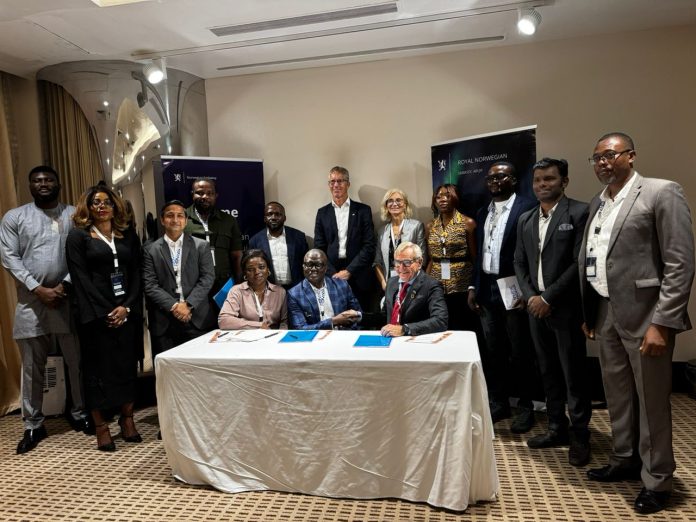Empower New Energy has signed two new solar and battery storage contracts with Jendol Superstores and Juddy-Bolema Industries Limited in Nigeria, marking a significant step in the country’s transition toward distributed renewable energy.
The agreements, formalized at the Nordic Nigeria Connect event in Lagos in October 2025, cover approximately 4 MWp of rooftop solar and 3.5 MWh of battery storage, representing an investment of around USD 4 million. The projects will be constructed and operated by local EPC partner Paras Energy under ten-year Power Support Agreements, which include financing, construction, operation, and maintenance.
The installations are projected to reduce CO₂ emissions by roughly 3,000 tonnes annually while providing a reliable, cleaner alternative to diesel generators, which remain a primary energy source for many Nigerian businesses. Jendol Superstores will deploy solar and battery systems across five branches, supplying over half of their energy needs, while Juddy-Bolema Industries will cut reliance on diesel for its manufacturing operations in Onitsha.
Read also: Africa’s Green Economy Summit returns with $5bn investment pipeline and expanded project showcase
Empower New Energy CEO Terje Osmundsen noted that these projects are the company’s 10th and 11th investments in Nigeria, bringing the total value of its Nigerian portfolio to more than USD 30 million. “We are delighted to expand our solar partnerships in Nigeria. These projects showcase how scalable, investment-ready renewable energy solutions can be implemented to deliver both environmental and financial benefits,” he said.
The projects also illustrate the growing potential of structured energy solutions in Africa. By combining international investment, local engineering expertise, and long-term supply agreements, the model mitigates risks that have traditionally slowed solar adoption, such as upfront capital requirements, maintenance challenges, and operational uncertainty.
Financially, the Power Support Agreement structure allows the companies to focus on their core operations while receiving predictable electricity services. For Jendol Superstores and Juddy-Bolema Industries, this translates into lower operating costs, reduced exposure to fuel price fluctuations, and improved energy reliability. The integration of smart energy management systems ensures seamless coordination between solar, battery storage, and existing grid or diesel generation, maximizing efficiency and resilience.
The broader implications for Nigeria’s renewable sector are substantial. Distributed solar and storage systems have the potential to address the country’s persistent energy gaps, reduce dependence on diesel generators, and unlock private capital for similar projects across industrial and commercial sectors. Analysts estimate that Nigerian enterprises spend billions annually on generator fuel, and redirecting even a portion of that expenditure toward structured renewable solutions could mobilize significant investment while cutting emissions.
Local job creation and skill development are additional benefits, as project construction and ongoing operations rely on domestic contractors and technicians. This approach not only strengthens the local renewable energy industry but also contributes to regional economic development.
Read also: Devki Group breaks ground on Uganda Steel Plant set to transform East Africa’s industrial future
The Lagos signing was attended by Norway’s Ambassador Svein Bæra and Counsellor Solveig Andresen, underscoring the growing interest of international stakeholders in Africa’s energy transition. While the projects themselves are moderate in scale, they exemplify a practical, replicable pathway for other African businesses seeking to decarbonize operations and access reliable, cost-effective energy.
Empower New Energy’s ongoing investments in Nigeria highlight the intersection of finance, technology, and policy in driving the continent’s energy transformation. The success of these initial projects could catalyze further deployment of commercial-scale solar-plus-storage solutions, helping Africa meet its climate goals while fostering sustainable economic growth.
Engage with us on LinkedIn: Africa Sustainability Matters






